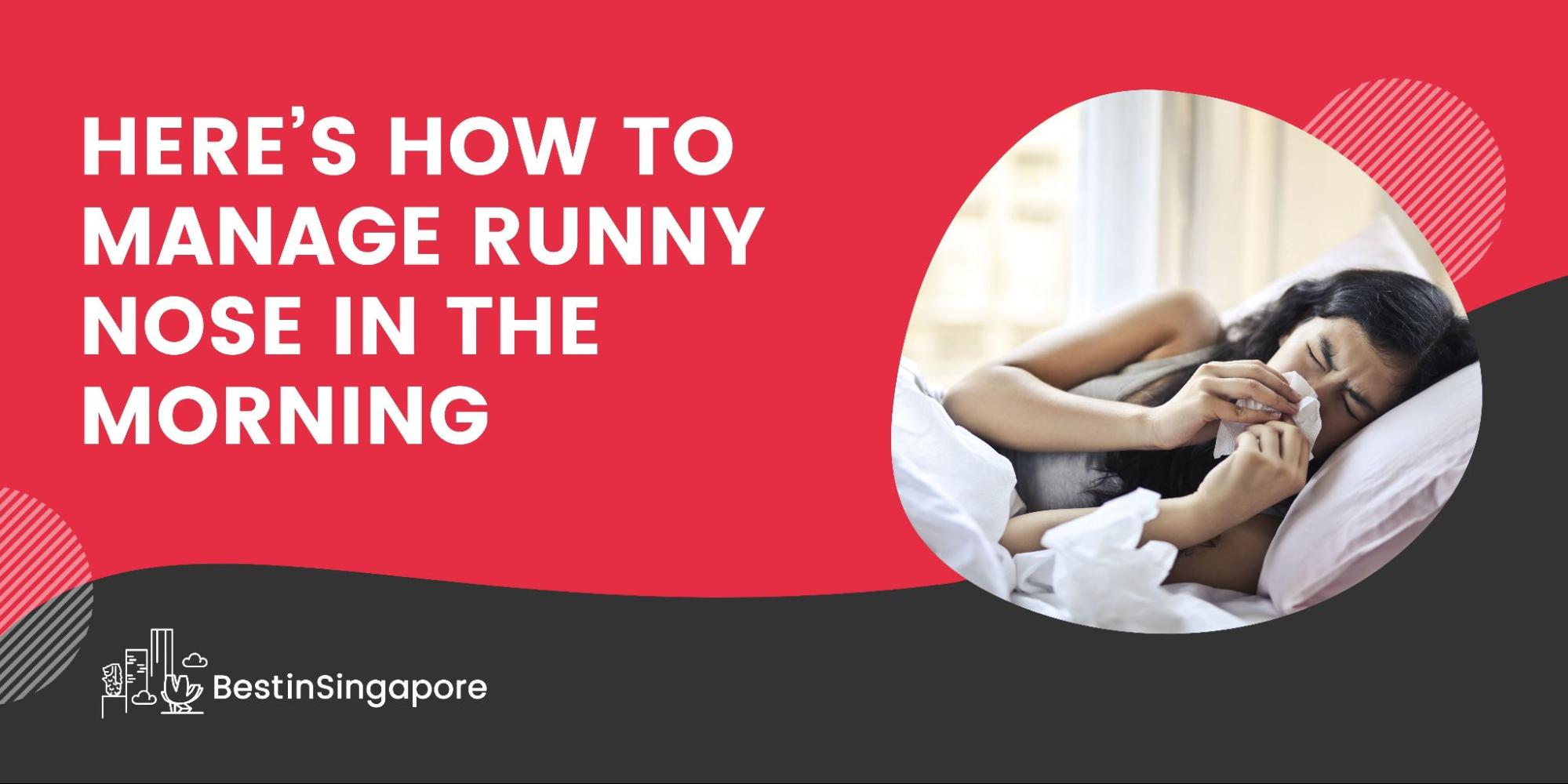Here’s How to Manage Runny Nose in the Morning
Waking up with a stuffy nose can get pretty annoying, especially if it happens on a daily basis. It doesn’t necessarily mean that you have a cold or flu, but it can be a sign of something else: allergic rhinitis.
To help you understand it better, we’ll talk about symptoms, potential causes, plus some tips on prevention and treatment. If you’re ready, then let’s begin!
What’s allergic rhinitis, anyway?
According to HealthHub, allergic rhinitis is a condition that’s triggered by substances called allergens. It’s said that the condition affects about 13% of the population.
Allergens are present everywhere, both indoors and outdoors. When you breathe in allergens, it will basically trigger an immune response such as the following:
- Sneezing
- Runny nose with clear discharge
- Clogged nose
- Itchy nose
- Red, itchy eyes
Common Causes of Allergies in the Morning
As mentioned, allergens can cause inflammation inside your nose. Some common allergens include the following:
- Pollen
Pollen is a powdery substance that can be found in plants, trees, flowers, and grass. These tiny substances are dispersed by wind, which can stay on your clothing.
You’re more likely to be exposed to pollen if you sleep with your windows open. Indoor plants may also be a source of pollen.
- Mold
Mold spores grow in moist areas like bathrooms, kitchens, and basements. It can also be found in logs, dead leaves, and grass outdoors, which may trigger an allergic reaction if you leave your windows open.
- Dust
This common indoor allergen is caused by tiny dust mites scattered throughout your living space. They can be found in carpet fibres, the nooks and crannies of your room, blinds, and more.
Treatment and Prevention Methods
There are different types of treatment and prevention methods available depending on the severity of your symptoms. Here are some tips to help you get started:
- Try non-drowsy antihistamine
You can head over to your nearest pharmacy to get over-the-counter non-drowsy antihistamines. Note that it’s important to get the non-drowsy option, especially if you’re taking medication in the morning.
Non-drowsy antihistamines are only used for mild cases taken over a short period of time. If symptoms persist, we highly recommend consulting with your GP.
- Schedule a regular cleaning
It goes without saying that allergens aren’t visible to the naked eye, but it doesn’t mean that they’re not present in your living space. In that case, it’s best to have a regular cleaning schedule to keep your space free from allergens as much as possible.
If you can’t find time to clean your space, you can enlist the help of a part-time cleaner. It can also be helpful to disinfect your space every now and then.
- See a specialist
We recommend visiting an ENT specialist if you think you have a more serious condition. If your allergies are affecting your daily life, then it’s best to see a specialist right away.
Alternatively, you can also check out health screening centres for allergy tests if you’re unsure what triggers your allergies. Pinpointing an exact cause can help you manage your symptoms easier.


